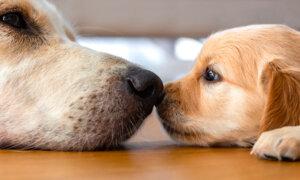New South Wales Parliament Passes Puppy Farm Restriction Laws with Potential Fines of $550K
If the legislation is passed, a maximum cap of 20 fertile female dogs over six months will be applicable at any breeding premise.
A new law introduced in the New South Wales (NSW) parliament will require puppy and dog breeders to obtain a Breeder Identification Number.
Additionally, the proposed legislation will limit the number of female fertile dogs, with penalties including fines and potential prison sentences for violators.
Violating this law could result in a penalty of up to $550,000 (US$365,000) for corporations, or $110,000 or two years in prison for individuals with limited exemptions.
Agriculture Minister Tara Moriarty emphasized the NSW government’s commitment to animal welfare.
Moriarty pointed out that a NSW parliamentary inquiry on puppy farming had received over 900 submissions and 6,000 responses, with 86 percent supporting a ban on puppy farming.
“This showcases the increasing public demand for ethical breeding practices,” she stated.
She also mentioned that the bill was developed after extensive consultations with the community, industry, peak bodies, and parliamentary inquiries to ensure a robust regulatory framework with clear provisions.
According to the minister, anyone breeding dogs, whether regularly, occasionally, or accidentally, will need to obtain a breeder identification number under the bill.
“Enforcing the use of these identification numbers will establish a traceability scheme in NSW, allowing for the tracking of dogs back to their original breeders irrespective of current ownership,” she explained.
Organizations caring for seized or surrendered dogs can acquire a rehoming organization number if a dog becomes unintentionally pregnant.
Currently, over 19,000 companion dog breeders have voluntarily registered for a breeder identification number, and 100 groups have signed up for a rehoming organization number.
Starting Dec. 1, 2025, dogs will be required to have a microchip and the breeder’s identification number.
“The bill will mandate increased identification for the sale or transfer of dogs, including during transfers or giveaways,” the minister added.
Animal Welfare League Supports the Bill
Stephen Albin, CEO of Animal Welfare League NSW, expressed support for the bill, stating that it would combat breeders engaging in unethical practices.
Albin highlighted a significant rise in breeding since COVID-19, leading to more dogs in shelters and longer waiting lists, making it challenging to find homes for dogs and puppies.
“Unfortunately, many dogs are unable to find new homes. This bill will help alleviate the pressure on shelters and enable us to rehome surrendered or abandoned dogs,” he explained.
Local government Minister Ron Hoenig stated that the bill would increase government oversight to ensure all breeders comply with animal welfare standards.
“Both industry and animal welfare stakeholders agree on the need to eliminate bad actors and provide better protection for animals and customers against unethical breeders. This bill accomplishes that,” he noted.
“Consumers expect dogs purchased from breeders to have been treated well and not exploited by dishonest puppy farmers for profit.”
Addressing Education and Responsible Breeding
Previously, Animal Care Australia (ACA) expressed reservations about puppy farm legislation in NSW.
In an Aug. 26 social media post, the group advocated for “supporting education and responsible breeding instead of imposing restrictions. No dog or cat should endure cruelty or neglect.”
“Responsible breeders disappear under restrictions and under-ground unethical breeders are incentivised to breed more to match the demand. Families deserve responsibly bred dogs and cats.”





